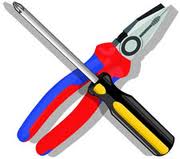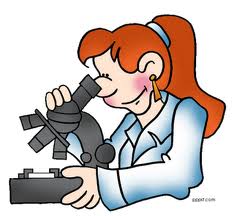 |
 |
Belbin's Team Roles | |||||
|
|
|||||||
|
When people get together to work in groups or as a team their performance is affected by a complex interaction of personalities and character traits. Dr Meredith Belbin suggests 9 identifiable roles that people adopt when working in teams - and the characteristics associated with each role.
Individuals rarely display the characteristics of just one team role. They are more likely to have several preferred roles, from which they adopt the one most appropriate to the team of which they are presently a member.
|
|||||||
|
|
PLANT
Creative and imaginative. An "ideas person" (though they may not always be good ideas). A problem-solver. Innovative and inventive. PLANTS prefer to work alone, using their imagination and often working in an unorthodox way.
They tend to react strongly to criticism (or praise) and may have difficulty communicating with people who are "on a different wavelength".
|
||||||
|
RESOURCE INVESTIGATOR
Enthusiastic and extrovert. A "contacts" person who picks up on other people's ideas and explores opportunities. Good communicators capable of "thinking on their feet".
RESOURCE INVESTIGATORS tend to get bored easily unless faced with new challenges.
|
|
||||||
|
|
CO-ORDINATOR
Mature, confident and trusting. A good "chairperson" who clarifies goals and facilitates decision-making. CO-ORDINATORS recognise and develop the skills of others, motivating them and generally commanding respect.
They could use their skills to manipulate people.
|
||||||
|
SHAPER
Dynamic, outgoing and highly strung. SHAPERS challenge and pressurise people into getting the job done. They need to achieve and like to win. They do not let obstacles stand in the way of getting things done.
Their hard-driving style can upset and offend others.
|
|
||||||
|
|
MONITOR-EVALUATOR
Weighs up all the options and makes accurate judgements. Sober, sensible and discerning. MONITOR-EVALUATORS love to analyse and evaluate.
They rarely show enthusiasm and are not good at inspiring or motivating others.
|
||||||
|
TEAM-WORKER
Socially oriented. A "people-person" who gets on well with everybody. They sense relationship problems and smooth them over. They help to promote team spirit. They listen carefully.
TEAM-WORKERS have difficulty making decisions - for fear of upsetting others.
|
|
||||||
|
|
IMPLEMENTER
Well organised and efficient, they will do what needs to be done. They enjoy hard work and tackle problems in a systematic way. Disciplined, reliable and efficient, IMPLEMENTERS plan and formulate to turn ideas into practical actions.
They have a tendency to be inflexible and can be slow to respond to new possibilities.
|
||||||
|
COMPLETER-FINISHER
Painstaking, conscientious and careful, they pay attention to detail, spotting errors and correcting them. They can be trusted to deliver on time.
COMPLETER-FINISHERS have a tendency to worry. They are reluctant to delegate, afraid that others may not work to the same high standards.
|
|
||||||
|
|
SPECIALIST
Single-minded and dedicated, they provide expert knowledge or specialist skills. They can be enthusiastic for their subject specialism but may show little regard for anything else.
SPECIALISTS may have difficulty communicating to the ordinary person.
|
||||||
|
Click here for the Belbin Team Roles website
|
|||||||






